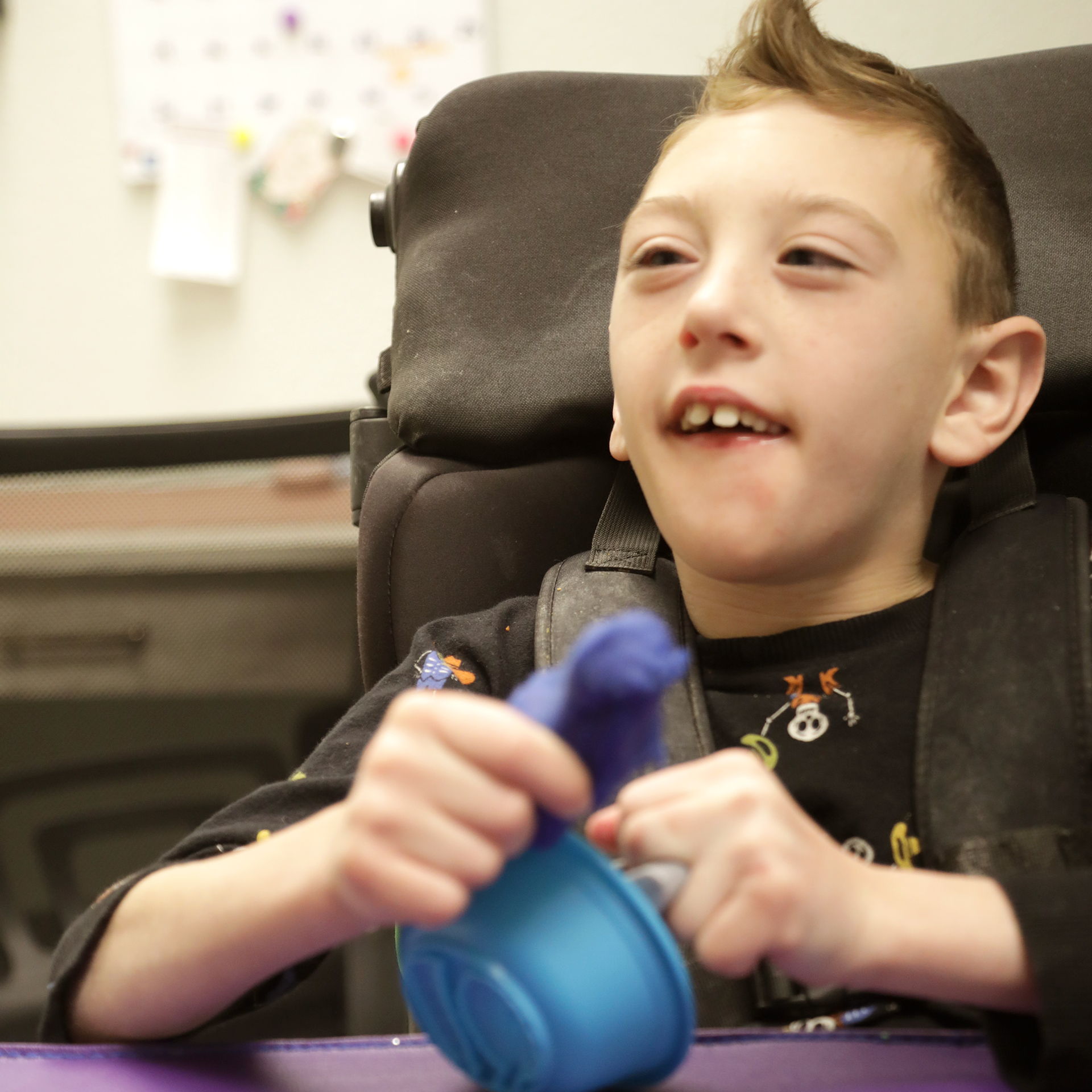BCBA Career Path To Take


Understanding the Journey to BCBA Certification
Embarking on a career as a Board-Certified Behavior Analyst (BCBA) offers a fulfilling trajectory in the field of behavior analysis, a profession marked by robust demand and rich opportunities for specialization. Whether you're drawn to work in educational systems, healthcare, business management, or beyond, the BCBA certification opens doors to impactful roles focusing on improving behaviors across numerous contexts. In this guide, we'll explore the necessary steps, potential career paths, and the unique benefits of pursuing this rewarding career.
Steps and Requirements to Become a BCBA

What are the steps and requirements to become a Board-Certified Behavior Analyst (BCBA)?
To embark on the journey of becoming a Board-Certified Behavior Analyst (BCBA), candidates must follow a series of structured steps. Initially, obtaining a bachelor’s degree in a relevant field sets the foundation for further studies. While a background in psychology is advantageous, it is not mandatory.
After earning a bachelor’s degree, the next step involves pursuing a master’s degree in applied behavior analysis (ABA) or a closely related discipline. This graduate program must include a specific verified course sequence approved by the Behavior Analyst Certification Board (BACB), encompassing at least 315 graduate-level hours in behavior analysis. This coursework is vital as it prepares candidates for the practical application of ABA principles.
What are the fieldwork requirements?
Completing a significant amount of supervised experience is critical before sitting for the BCBA exam. Candidates are required to accumulate between 1,500 and 2,000 hours of supervised fieldwork, which can be fulfilled through two routes: 1,500 hours of concentrated supervised experience or 2,000 hours of more general supervised practice. This practical experience must be gained under the supervision of a qualified BCBA, ensuring that candidates are well-prepared for their future roles.
What is the certification process?
Once the educational and fieldwork requirements are satisfied, candidates can take the next step: passing the BCBA exam. This exam consists of 185 multiple-choice questions covering the fundamentals and practical applications of behavior analysis. A passing score on this four-hour exam is a critical milestone towards achieving BCBA certification.
After successfully passing, candidates must apply for certification from the BACB, which may include state licensure depending on local regulations. To maintain certification, BCBAs are required to complete ongoing continuing education, adhere to ethical guidelines, and renew their certification every two years.
This pathway to becoming a BCBA not only requires extensive education and experience but also emphasizes a commitment to lifelong learning and ethical practice.
Timeline to BCBA Certification

How long does it take to become a Behavior Analyst?
To become a Board Certified Behavior Analyst (BCBA), the overall process typically spans 6 to 13 years, depending on individual educational choices and completion pace.
Education Duration
- Bachelor's Degree: This foundational requirement generally takes about 4 years. While a degree in psychology is common, it’s not strictly necessary.
- Master's Degree: Following the bachelor's, candidates must pursue a master's degree in Applied Behavior Analysis or a related field, which usually requires an additional 2 years of study. The program should be recognized by the Association for Behavior Analysis International (ABAI).
Fieldwork Duration
After completing the master's degree, aspiring BCBAs must accumulate 1,500 to 2,000 hours of supervised fieldwork. The duration to complete these hours can take anywhere from 1 to 5 years, depending on the individual’s available time and the structure of their fieldwork experiences.
Exam Preparation
Once the fieldwork requirement is met, candidates prepare for the BCBA certification exam, which is a four-hour test. Preparing for this exam is an integral part of the master's program, ensuring that students are equipped with the necessary knowledge to pass.
Overview of the Timeline
This timeline outlines the commitment necessary to obtain BCBA certification, preparing individuals for varied roles in the field of behavior analysis.
Choosing the Right Educational Path

What degree is best for pursuing a BCBA certification?
To become a Board Certified Behavior Analyst (BCBA), aspiring candidates should begin their academic journey with a bachelor's degree. Ideal fields for this degree include psychology, education, or other related behavioral sciences. These disciplines provide a solid foundation in understanding human behavior, which is crucial for a career in behavior analysis.
Afterward, candidates must pursue a master’s degree in Applied Behavior Analysis (ABA). This program typically requires a minimum of 315 hours of verified coursework and must be accredited by the Association of Behavior Analysis International (ABAI). Upon completion of the master's program, candidates are required to accumulate 1,500 to 2,000 hours of supervised fieldwork to gain hands-on experience in the field.
The culmination of this educational path is the BCBA exam, consisting of 185 questions designed to assess candidates' knowledge of behavior analysis fundamentals and applications. Furthermore, most states mandate obtaining licensure to practice independently, emphasizing the importance of understanding state-specific requirements throughout this process. Lastly, maintaining BCBA certification requires fulfilling continuing education and adhering to ethical standards every two years.
Comparing BCBA and RBT Career Paths

What is the difference between becoming a BCBA and an RBT?
To embark on a career as a Board Certified Behavior Analyst (BCBA), one must pursue a graduate-level education. This typically involves earning a master’s degree in behavior analysis or a related field. Candidates must also complete designated coursework, usually verified by the Association of Behavior Analysis International (ABAI), and 1,500 to 2,000 hours of supervised fieldwork to gain practical experience before taking the BCBA exam.
On the other hand, the pathway to becoming a Registered Behavior Technician (RBT) is significantly less rigorous. Aspiring RBTs need only a high school diploma and must successfully complete a 40-hour training program. They also have to pass a competency assessment to earn their certification. RBTs play a supportive role, implementing behavior intervention plans designed by BCBAs under direct supervision.
Job Responsibilities
The responsibilities of BCBAs are far more complex than those of RBTs. BCBAs conduct assessments, develop tailored behavior intervention plans, and train staff, families, and caregivers on the implementation of these plans. Conversely, RBTs primarily focus on executing behavior plans and recording data under the guidance of their supervising BCBA.
Salary Comparisons
The salary spectrum reflects the differences in education and responsibilities between the two roles. BCBAs typically earn between $60,000 and over $90,000 annually, depending on their experience and location. RBT salaries, in contrast, range from approximately $30,000 to $45,000 per year. The demand for both roles is high, but BCBAs enjoy greater opportunities for advancement and increased responsibilities in the field of applied behavior analysis.
These distinct paths cater to different educational backgrounds and professional aspirations, allowing individuals to choose the career that aligns with their goals in behavior analysis.
Vast Career Opportunities for BCBAs
What career opportunities are available for BCBAs?
BCBAs experience a wealth of career opportunities that extend beyond traditional roles focused on autism spectrum disorders. They can work in a variety of environments, including:
- Educational Settings: Collaborating with teachers to develop strategies for managing behavioral challenges.
- Clinical Environments: Conducting assessments and creating individualized treatment plans.
- Healthcare and Wellness: Applying behavioral principles to enhance health and fitness.
- Research Institutions: Engaging in academic research to advance the field of behavior analysis.
- Organizational Behavior Management: Improving workplace cultures through behavioral interventions.
- Mental Health Support: Addressing issues like substance use disorders, integrating ABA with other therapeutic modalities.
In addition to these, BCBAs can also pursue roles in criminal justice, forensic analysis, and even environmental sustainability initiatives, demonstrating the field's versatility.
What are the job responsibilities of a BCBA?
The core responsibilities of a BCBA include a variety of essential tasks that contribute to the overall effectiveness of behavioral interventions. Key duties consist of:
- Conducting Functional Behavior Assessments (FBAs) to identify the reasons behind specific behaviors.
- Designing and implementing Behavior Intervention Plans (BIPs) tailored to individual needs.
- Overseeing and supervising Registered Behavior Technicians (RBTs), ensuring the adherence to treatment plans.
- Training parents, caregivers, and professionals to support behavior change effectively.
- Monitoring progress through ongoing assessment and adjusting strategies as necessary.
How is the growth and demand for BCBAs evolving?
The demand for BCBAs has seen an explosive increase, with reported growth of approximately 5,852% from 2010 to 2021, and a further rise of 23% from 2021 to 2022. This surge reflects a growing recognition of the value of ABA in diverse settings. As of now, there are over 64,000 BCBAs worldwide, underscoring the expanding career opportunities.
With the increasing emphasis on evidence-based practices in education and healthcare, alongside a general rise in awareness surrounding mental health and developmental disorders, the job outlook for BCBAs is robust. This burgeoning demand presents BCBAs not only with career stability but also the opportunity to significantly impact the lives of individuals across various populations.
Financial Prospects and Responsibilities as a BCBA

What are the potential salaries and job responsibilities for behavior analysts?
Salaries for Board Certified Behavior Analysts (BCBAs) reflect their advanced education and responsibilities. The typical salary range for BCBAs is between $88,000 and $151,000 per year, with a median salary of around $115,000.
Here's a brief overview of the salary breakdown:
The role of a BCBA involves various key responsibilities. BCBAs must develop and implement behavioral interventions tailored to the needs of their clients. This requires conducting thorough assessments and ongoing research to track effectiveness. They also supervise other staff members, such as Registered Behavior Technicians (RBTs), to ensure consistent application of behavior analysis techniques.
With an expected growth rate of 23% for BCBAs between 2021 and 2022, the job market is robust, indicating a high demand for skilled behavior analysts. Overall, as the field of behavior analysis continues to expand, the financial prospects for BCBAs remain promising.
Exploring Specialized Roles in Behavior Analysis
What specialized roles exist within the ABA industry for BCBAs?
BCBAs hold specialized roles that extend far beyond traditional therapy focused on autism spectrum disorders. Among these roles are positions as supervisors and clinical directors who oversee treatment programs and ensure they’re effectively implemented. In educational settings, BCBAs can serve as classroom behavior specialists, collaborating with educators to manage behavioral challenges among students.
In addition to these roles, BCBAs can also focus on Behavioral Pediatrics, where they work within interdisciplinary teams to address and treat childhood behavior issues. Specialties like Organizational Behavior Management (OBM) allow BCBAs to apply behavior analysis principles to enhance workplace performance and bolster employee satisfaction.
Unique industry contributions
The versatility of BCBAs extends into various sectors. For instance, those specializing in Behavioral Sport Psychology help athletes improve performance through behavioral techniques, while BCBAs in Geriatrics focus on promoting healthy lifestyle choices among older adults. Furthermore, BCBAs can contribute to Behavioral Financial Counseling, helping individuals modify their financial behaviors to meet personal goals.
In forensic settings, BCBAs leverage their expertise to analyze criminal behaviors and assist in investigations, making valuable contributions to public safety.
Impact of specialization
The ongoing demand for BCBAs has led to an impressive growth in the field, evidenced by an increase of over 5,852% from 2010 to 2021. As a result, practitioners with specialized skills are become increasingly sought after, and opportunities in fields such as Behavioral Health and Environmental Sustainability are also emerging.
Moreover, as BCBAs develop their niche specialties, they are better positioned to address specific and often complex behavioral needs in various communities. This not only broadens their professional horizons but also profoundly benefits the populations they serve, demonstrating the critical role of BCBAs in improving health, education, and workplace outcomes.
Strategies for Career Advancement as a BCBA
How BCBAs can advance their career?
For Board Certified Behavior Analysts (BCBAs), professional growth hinges on various strategies. One of the most effective ways to advance is through continuing education. Enrolling in workshops, pursuing certifications, or attending conferences enables BCBAs to stay updated on the latest research and best practices in Applied Behavior Analysis (ABA).
Expanding into new sectors
Additionally, BCBAs can explore opportunities in diverse sectors beyond traditional roles. For instance, entering organizational behavior management allows these professionals to apply ABA principles to enhance employee performance and workplace dynamics. Moreover, technology is an emerging field where expertise in behavior analysis can lead to innovative app development for therapeutic uses.
Leadership and consultancy roles
Transitioning into leadership roles such as clinical director or supervisor is another pathway for advancement. Providing mentorship and overseeing the implementation of effective intervention plans positions BCBAs for greater responsibilities. Furthermore, establishing a consultancy practice after gaining adequate experience not only boosts income potential but also allows for enriched professional fulfillment through direct client engagements.
Ultimately, progressing as a BCBA involves a commitment to lifelong learning, adaptability to new fields, and embracing leadership opportunities while developing niche skills in high-demand areas.
Conclusion
Becoming a Board-Certified Behavior Analyst is a commitment to ongoing learning and community impact. With the rising demand for certified professionals and the diverse opportunities available, embarking on this career path offers both personal fulfillment and professional success. Whether you aspire to work in direct client services, explore innovative research avenues, or impact organizational dynamics, the role of a BCBA stands as a central pillar in understanding and improving human behavior across contexts.
References
- How to Become a Board-Certified Behavior Analyst (BCBA)
- What Careers Can I Go Into Once I'm A BCBA? - Study Notes ABA
- Board Certified Behavior Analyst
- RBT vs. BCBA Career Paths - School of Education - Drexel University
- 6 ABA career paths with M.S. Applied Behavior Analysis
- BCBA Career Paths: Exploring Diverse Career Options for BCBAs
- How To Become a Board Certified Behavior Analyst
- Board Certified Behavior Analyst
Recent articles

How Pediatric Therapy Helps Kids Thrive across Montana and Wyoming
A supportive guide for families exploring therapy options in Billings, Butte, Missoula or Sheridan.

How to Choose the Right Pediatric Therapy Clinic in Billings, Montana
A Parent‑Friendly Guide To Finding The Best Support For Your Child

Expressive Speech Delay 2-Year-Old
Understanding and Addressing Expressive Speech Delay in Toddlers

How Speech Recognition Works
Unlocking the Power of Speech Recognition in Therapy and Healthcare

Autism and Head Size
Understanding the Complex Relationship Between Autism and Head Size

Occupational Therapy in Autism
Enhancing Independence and Quality of Life Through Occupational Therapy in Autism

